Oct 15, 2024
How to Prepare for MiCA Regulation: Licensing and Compliance
With the enactment of the Law on Crypto-Asset Markets in Lithuania, both current and prospective crypto-asset service providers face new regulatory expectations. This law aligns with the EU’s Markets in Crypto-Assets (MiCA) Regulation (EU) 2023/1114, which aims to standardize crypto regulations across member states. The Bank of Lithuania has outlined clear guidance to ensure a smooth transition, emphasizing the importance of proactive preparation.
While Lithuania benefits from the transitional period provided under MiCA, service providers will need to secure licenses by June 2025. This timeline offers additional preparation time but underscores the need for diligence and attention to the licensing process.
Lithuania’s Approach to MiCA: A Strict but Structured Path
Unlike some EU countries, Lithuania has opted for a stricter approach to licensing under MiCA. While jurisdictions like Germany allow simplified licensing for pre-existing providers, Lithuania requires all applicants, regardless of prior activity, to meet full licensing standards. This decision reflects Lithuania’s current supervisory framework, which focuses on anti-money laundering (AML) and counter-terrorist financing (CFT) compliance.
Germany’s Flexible Approach
Crypto service providers in Germany were previously required to comply with certain regulatory measures, making a simplified transition feasible.
Ireland’s Restrictive Stance
In line with ESMA's position, Ireland does not simplify licensing, arguing that prior AML/CFT compliance alone is insufficient to meet MiCA's scope.
In Lithuania, crypto-asset operators are supervised by the Financial Crime Investigation Service and the Bank of Lithuania, but they are not currently licensed. This regulatory gap justifies the country’s decision to adopt a comprehensive licensing framework under MiCA.
Preparing for MiCA Licensing in Lithuania
Key Considerations for Applicants
Future and current crypto-asset service providers planning to submit applications must closely adhere to the Bank of Lithuania’s expectations. According to the guidance published on August 16, 2023, successful licensing depends on:
Document Quality - applications must be detailed and tailored, avoiding templated or generic submissions.
Management Competence - candidates for leadership roles must demonstrate a thorough understanding of regulatory requirements.
Shareholder Transparency - full disclosure is required, including documentation on the origin of funds and reputation assessments.
Internal Controls - applicants must show robust risk management measures, qualified personnel, and sufficient resources for planned activities.
Incomplete applications risk rejection, as the Bank of Lithuania mandates transparency, accuracy, and proactive communication throughout the licensing process.
Common Deficiencies in Licensing Applications
The Bank of Lithuania has identified recurring issues in submitted applications:
Generic Templates - submissions often copy legal texts without customization for specific cases.
Delayed Information - critical details are frequently submitted late, delaying the process.
Insufficient Management Knowledge - leadership candidates struggle to articulate key regulatory aspects during interviews.
Weak Risk Controls - risk management measures are often inadequate, particularly in AML and CFT compliance.
To avoid these pitfalls, applicants should prioritize preparation, ensuring that every aspect of the application aligns with regulatory standards.
Post-Licensing Expectations: Maintaining Compliance Standards
Securing a license is just the beginning. Licensed crypto-asset service providers must meet stringent operational standards throughout their business activities. Non-compliance, whether due to negligence or lack of resources, will not be tolerated.
Key focus areas for ongoing compliance include:
Fraud Prevention - providers must invest in transaction monitoring systems, enhance IT security, and educate clients on fraud risks.
Client Fund Safeguarding - licensed entities must ensure client funds are protected and not used for business purposes. This includes depositing funds into credit institutions by the end of the next business day.
By adhering to these standards, providers can build trust and maintain their licenses.
Addressing Industry Challenges: Collaboration Is Key
The Credit Institution Barrier
One major challenge for crypto-asset service providers is the refusal of credit institutions to establish business relationships. Without access to banking services, providers cannot hold client funds as required by MiCA, jeopardizing their ability to operate.
To overcome this, it is essential for:
Crypto Providers - build transparent and compliant business practices to gain the trust of financial institutions.
Credit Institutions - engage in collaborative efforts to support the legitimate activities of crypto providers.
This mutual trust is critical for the success of the crypto-asset industry under the MiCA framework.
Ensuring a Smooth Transition to MiCA Compliance
For future market participants, readiness for MiCA extends beyond application submission. Proactive measures include:
Familiarity with Legal Frameworks: Deep understanding of MiCA, including technical standards and guidelines, is essential.
Resource Allocation: Adequate staffing and financial resources are crucial for addressing regulatory requirements.
Transparent Communication: Open dialogue with the Bank of Lithuania helps resolve issues efficiently.
By demonstrating preparedness, competence, and integrity, businesses can navigate the licensing process and establish themselves as trusted providers.
How Cerion Advisors Can Help
At Cerion Advisors, we specialize in guiding crypto-asset service providers through the complexities of MiCA compliance. Our services include:
Application Support
Assistance with tailored and high-quality licensing applications.
Risk Management Solutions
Development of robust internal controls to meet AML/CFT requirements.
Post-Licensing Compliance
Ongoing advisory to ensure adherence to operational standards.
Collaboration Facilitation
Helping providers build strong relationships with credit institutions and other market participants.
With our expertise, businesses can confidently meet MiCA’s requirements and position themselves for long-term success in the regulated crypto market.
Unlock Business Growth with Expert Licensing, Compliance, and Strategic Solutions
Partner with us to streamline your regulatory journey and secure the licenses you need to grow globally. Let’s collaborate to ensure your business is compliant, competitive, and positioned for success.




